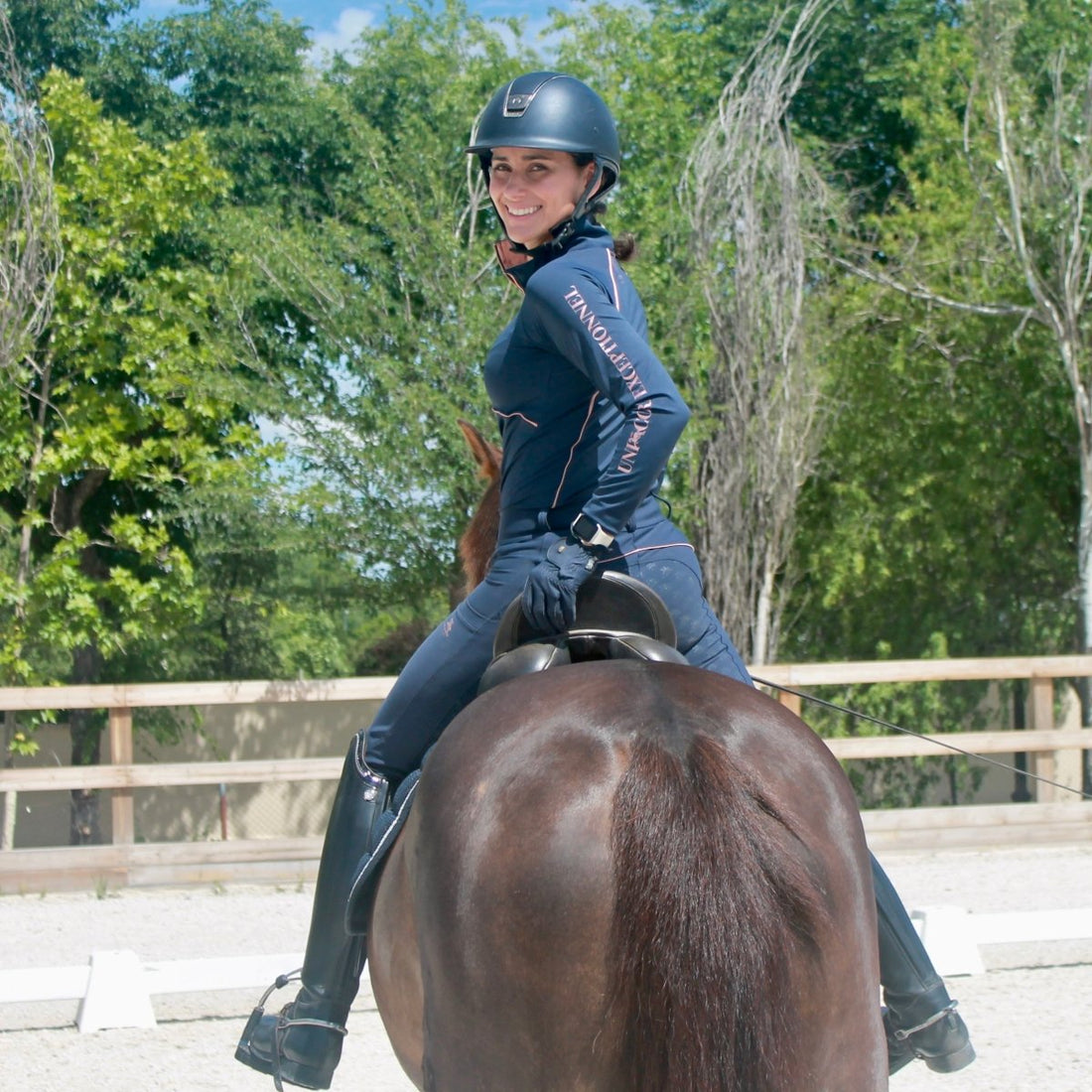3 min read
Horses have long been a source of inspiration for the world's best writers. They have helped us at every step of the transformation of modern society. The connection between humans and horses goes way beyond just a mode of transportation. As a result, there are now thousands of great horse quotes dedicated to relaying their beauty.
“The horse is a great equalizer. He doesn’t care how good-looking you are, or how rich you are, or how powerful you are – he takes you for how you make him feel.”
-Buck Brannaman
“The horse, with beauty unsurpassed, strength immeasurable, and grace unlike any other, still remains humble enough to carry a man upon his back.”
“It is the difficult horses that have the most to give you.”
-Lendon Gray
What causes a horse to become difficult
Difficult horses choose not to comply with what a trainer is asking them to do. They can be hard to handle, insecure, and disobedient, but in the end, it is our responsibility to help them overcome their fears and difficulties. If you have a horse like that you know how challenging it can be.
There may be errors made by previous owners or trainers, such as moving too fast with the horse's training, thinking that a one-size-fits-all approach works for every horse, or having expectations too high for a horse's level of training.
Here are more factors that we may not be aware of. To reach these horses and try to understand them you have to:
Master your emotions
Building a connection and trust-based bond with a horse is the foundation for everything you want to do and achieve, remember that you work together and help each other. Horses tend to pick up on the emotions of the people that are around them, they'll mirror the energy in the atmosphere that you put off. So be careful with your energy level and how you show up around a horse. Stay consistent with your communication, always sending and receiving messages in the same way- a way that both you and the horse clearly understand. A difficult horse can be problematic, but you can't lay it all on the horse. If you allow negative energy to harbor inside you, it will eventually come out either in a verbal or nonverbal way. The horse feeds off of it, so there's no point in letting yourself get to a boiling point. Take some inventory of your moods and feelings as you spend time with the horse, and try to keep it positive and productive.
“If your horse says no, you either asked the wrong question or asked the question wrong.”
-Pat Parelli
A great horse will change your life. The truly special ones define it ..."
-Unknown
“There are only two emotions that belong in the saddle: one is a sense of humor and the other is patience.”
-John Lyons
Understand the horse
We are verbal communicators, but horses primarily communicate through body language. When you slow down your "talking" and simply allow a horse to "speak", you'll start to see things differently. Quickly, a horse will notice that you understand them, tuning in to what they are saying, and respecting set boundaries. Also, allow a horse to have freedom of choice. A choice to say "no". Suggest what you'd like them to do, but let them ultimately choose how they respond. Trust is built in these moments spent with no expectations and freedom of choice. Also, remember that patience is a virtue. Our job as trainers and riders is to build a healthy, loving, and trusting relationship with a horse.
“Get creative… or your horse will.”
-Craig Johnson
“If you act like you’ve only got fifteen minutes, it will take all day. Act like you’ve got all day, it will take fifteen minutes.”
-Monty Roberts
Be a good leader in training
There is nothing to be gained from forcing a scared horse to do something. Instead, be a good leader, one who is fair and forgiving, yet leads with authority. Be a leader a horse can turn to for guidance and security. If the horse feels you are taking care of and keeping him safe, training becomes easier. If the horse doesn't understand what you're asking, then it's your job to figure out how to communicate it in a way it understands. A good trainer should be able to find the root cause when a horse isn't able to perform a particular task. Keep in mind that every horse is an individual, just like a person, and has to be trained as such. As his rider, it's your job to give him every opportunity to perform at his best.
And finally, two important tips: take all the time you need and even take steps back if necessary. Your training approach requires confidence and patience, and you'll both become better because of it.
“Never let success go to your head and never let failure go to your heart.”
-Ziad K Abdelnour
“God forbid that I should go to any heaven in which there are no horses.”
-R.B. Cunningham Graham

